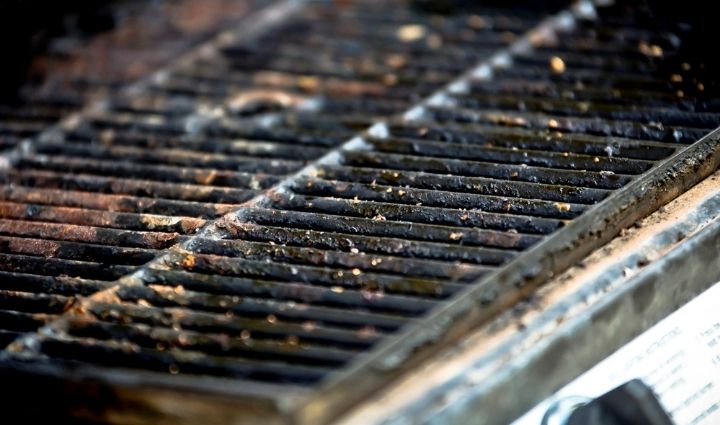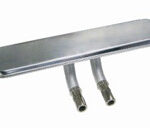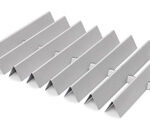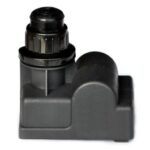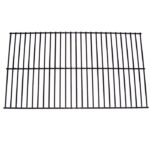“How long should a gas grill last” is a common question. There is no one-size-fits-all answer—ultimately, the longevity of your grill will vary based on the type of grill you have and how well you take care of it.
All grills and their components will eventually wear out with routine use. How long you can expect each part to last depends on the quality of your grill, how often it is used, how regularly it is cleaned, and how well it is maintained. In addition, how the grill is used will also affect lifespan. You can typically expect a minimum of two years out of any part, and up to 10-15 years from some higher quality pieces, especially if you keep your grill clean and well-maintained.
Before we dig into how long grill parts should last, let’s take a look at some factors that affect lifespan:
1. Cost and quality
The cost of your grill is a key determinant of its quality and how long it will last. A $200 grill is simply not made with the same quality of materials as a $500 grill, and a $500 grill is not made with the same quality of materials as a $1,000 grill.
At first glance, higher and lower priced grills may look very similar, but when you look closer you will find key differences that explain the significant range in price. The most important differences include the type of materials used in construction and the thickness and/or diameter of materials used (less material means a lower cost). Here are some common differences to look out for:
Burners
- Thickness of burner wall (thicker is better). The weight of the burner is a good way to check this out—does it feel light for its size, or is it heavier?
- Type of stainless steel used. Different types of stainless steel last longer than others, with Grade 304 stainless steel being the best option for gas grills.
- Diameter of burner
Cooking Grates
- Material—porcelain-coated steel cooking grates are the cheapest and have the shortest lifespan. If the porcelain coating is chipped, rust will set in.
- Cast iron cooking grates and grates with stainless steel tubes and steel rods have mid-range cost and lifespan, and solid stainless steel cooking grates are the most expensive with the longest lifespan
- Diameter of grate rods—thicker rods will take longer to deteriorate
Heat Plates
- Materials used—porcelain coated steel has a shorter lifespan, while stainless steel typically lasts longer. This too will depend on the type of stainless steel used.
- Are the heat plates light and flimsy or are they heavier and rigid? The thickness of material used and the quality of the porcelain coating (in the case of porcelain coated steel) will affect the lifespan of this part.
GRILL SPOT TIP: If you are on a limited budget, look for a gas grill with fewer features rather than more. As a general rule, grills in the low-to-mid price range that have lots of bells and whistles will contain key parts such as burners, cooking grates, heat plates, and even structural parts (such as shelves, doors and panels) that are made of lower quality materials.
2. What and how you grill
High heat grilling will put more wear and tear on grill components than lower heat cooking. Similarly, what you cook can also affect the longevity of your grill parts. High acid marinades tend to corrode, for example. Cooking fatty meats can also lead to grease buildup on heat plates and in the grease tray. This can lead to flare-ups and grease fires, which in turn puts more wear-and-tear on these parts. The best way to prevent deterioration is to clean your grill regularly—keep reading for detailed instructions.
How To Make a Grill Last Longer
While your grill and its parts will wear out eventually, the simplest way to ensure your grill lasts a long time is by taking good care of it. That means cleaning it regularly, maintaining it throughout the seasons, and protecting it from the elements with a good grill cover. Replacing grill parts instead of purchasing a brand new grill when things stop working can also significantly extend the lifespan of your grill.
Here’s how to keep your grill clean:
The quick, everytime clean
You should always brush and scrape your cooking grates after every cookout to help maintain your grill between uses. When your grill is cold, brush the interior of the lid and the cooking grates using a grill cleaning brush to remove any leftover debris from your last cookout. For stubborn bits that will not be brushed off, try a wood scraper.
The seasonal clean
You should also give your grill a more thorough cleaning with every change of the seasons.
Spring BBQ maintenance
After sitting on the sidelines in the off-season, it’s time to get your grill game-ready. If you did a deep clean before putting your grill away for the winter, getting your grill back up and running should only take a few minutes. Be sure to:
- Test for gas leaks
- Check your burners for blockages
- Put the battery back in if your grill has an electric ignition system,
- Inspect your grill for any damage
- If it needs to be cleaned—again or because you weren’t able to before storing it for winter—follow the winter cleaning guidelines below.
Take a more in-depth look at our guide to spring BBQ maintenance.
Fall BBQ maintenance
Chances are your grill has been used regularly by the time fall arrives, and while you may not be ready to pack it away for winter, it still deserves a good cleaning after all the work it has put in over the summer. Learn how in our fall grill care guide.
If you don’t plan to grill through the winter, you can skip autumn maintenance as long as you give your barbecue a deep clean before storing it.
Winter BBQ maintenance
If you’re preparing your grill for winter storage, you’ll want to do an even more thorough cleaning, as well as a careful inspection to prepare it for storage. Follow these steps:
- Disconnect your propane tank or natural gas line
- Clean your grill from top to bottom, including the cooking grates and charcoal grates, heat plates, burners, grease tray, drip pan or ash catcher, and the grill exterior
- Inspect it for damage
- Prepare it for storage: Season the grates with a light layer of cooking oil, polish your grill’s exterior for additional protection, remove the burners and wrap them in plastic to keep spiders and insects from nesting in the gas tubes, and if your grill has an electric ignition system, remove the battery
- Cover it with a weather-resistant grill cover
For a more in-depth look at getting winter-ready, check out our guide to winterizing your grill.
The deep clean
Your grill should be deep cleaned at the end of every grilling season or, if you grill year round, twice a year every six months or so. If you still have them, follow your manufacturer’s cleaning instructions. If they are no longer in your possession, follow our directions for deep cleaning your grill.
When to Replace Grill Parts
Over the lifespan of your barbecue, parts can deteriorate and impact the performance of your grill. The good news is that a broken part doesn’t mean it’s time to replace your barbecue—most grill parts are easy to replace in a few simple steps.
The easiest way to tell if you need to replace any part in your grill is if you notice that your grill is providing inconsistent heat, uneven flames, flare-ups, or otherwise performing poorly or in unexpected ways. If you notice any of these signs, inspect your grill for parts that are rusting, flaking, or showing any other signs of deterioration. Once you have determined which part it is causing the problem, you can easily remove and replace it with a bit of guidance. Many of the parts in your grill are easy to replace on your own and doing so can significantly extend the life of your grill.
Shop for replacement grill parts:
How to replace parts
Find out how to replace grill parts with our step-by-step guides:
- How to Replace Your Gas Grill Burners
- How to Replace the Heat Plates
- When and How To Replace your Grill Igniter
- How To Clean Your Grill’s Cooking Grates & When to Replace Them
Wrapping Up
The longevity of grills and their different parts will vary depending on what they are made of and what they are used for, but you can typically expect a minimum of two years out of any part, and up to 10-15 years from some higher quality pieces. If it breaks down before its typical lifespan is up, you may want to revisit your warranty and contact the manufacturer to get it replaced.
More cleaning tips

